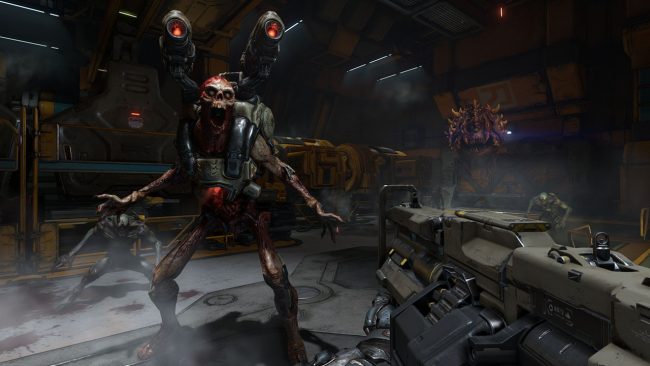
Let’s play a game. Open up the Wikipedia page for the Lynx constellation. You need to navigate to the page for the 1995 film Babe in as few clicks as possible without leaving the site. Oh, and no typing in the URL at the top, ya sneaky bastard; hyperlinks only. Now let’s work this game. We need to maximise efficiency to optimise our performance in this game against other agents in the market. To that end, we’ll need to patent whatever search processes we use (human-based or otherwise), start looking into automated techniques and invest in whatever relevant start-ups we can find. It will also be your responsibility to have fun as per SIM:0451 standards, and if you’re struggling to stay motivated, git gud.
Games rarely feel like a lot of work, but there isn’t much differentiating games from work. Games require dedication that can rival a part-time job, and sometimes the necessary skills aren’t that different. Minecraft wouldn’t be where it is now if people hadn’t worked their asses off making stupidly detailed replicas of fictional locations. So, why is it that we never really consider games to be work? We have Let’s Plays, eSports and creative competitions that give people tangible monetary rewards for playing games to work-like levels. Shouldn’t the invested time be considered work if it pays off? Let’s pretend words have more meaning than they do for a second.

Play hard, win big, but you’ll have to work for it
Last I checked, we don’t work games; we play them. Play is a self-directed activity, something we choose to do because we want to. Playing games is not born out of necessity like eating or sleeping, and it’s rarely a dull activity to engage in. Whether you’re fitting puzzle pieces together or roaming the nuclear wasteland for pencils, play is an activity we undertake ourselves, not something that is handed down to us. Work, on the other hand, tends to be less enjoyable, more directed and more profitable.
Work is a more externally driven than play. A tedious task like stacking shelves is compensated with sweet dollar bills for whoever undertakes it, but few people want to stack those shelves in the first place. Unlike play, work is a necessary activity that just kind of needs doing, like having someone hold up that slow/stop sign at construction sites. You might not want to do it yourself, but someone has to. After all, if farmers didn’t work their fields, we’d all die, and can you imagine a world without lawyers? Don’t be fooled, these two paradigms of labour are not mutually exclusive.

If a game about working a job can be considered play, anything can
It’s not too hard to come up with examples of play in work. Getting to mess around with simulation software at university feels more like play than work for me, and optimising parameters is like a game in of itself. Examples of work in play, on the other hand, are a little trickier. Arduous tasks like playing a real game of Diplomacy might count, but even maintaining a rigid gaming schedule with your friends can be a lot of work too. We don’t tend to think of this as work, though, since it’s in the context of games, but is that all there is to it?
Labelling an activity ‘a game’ has a surprising amount of influence over how we view it. Humans are group based creatures. We think and act in groups, and we have evolved to go with the flow most of the time. To that end, if we are told by someone else that something is a game, it’ll be hard to convince us otherwise. We associate games with play, and until our experiences change that belief (which is pretty hard to do), we’re more likely to see the play than the work. Those initial beliefs have to come from somewhere, though, and it’s not like games magically convinced us they were fun. Except they did.

Because who would ever think something that looks like this would be enjoyable?
Games are designed to induce a flow state, a state of hyperfocus where you lose track of time because you’re wholly involved in what you’re doing. Flow is feeling the groove in Tetris or thinking twenty moves ahead in Civ, but creating this flow state requires intrinsic motivation on behalf of the player. Without creating an experience that you can enjoy, the flow state is almost impossible to achieve, and games provide this through carefully designed reward systems. We rarely find intrinsic motivation in work because it is often given to us rather than being self-assigned. But work has its rewards too – flow can even be achieved while solving equations – so why are games so different?
The big differentiating factor lies in the simplicity of games. That’s the sentiment we point towards when we’re talking about games as escapism. Life sucks, games don’t. Yes, it’s fun to be a high-profile dude in a fantastical world, but we don’t want the baggage. If it were our job, the realities of the downtime and other necessities would bog down the bits we like into a tedious, complex experience. Simplicity is the name of the game here, but without a high skill ceiling to keep our intrinsic motivation up, it’s all for nought. A thin line separates repetition and monotony. Find that sweet spot, and you have something that can keep you smiling on the inside for hours on end. Don’t go thinking that you’re not working, though.

Here’s today’s jobs. Get ’em done, will ya?
If we’re thinking of play as a self-directed activity and work as externally driven, games are an awkward in-between. On the one hand, yes, games are things that you pick up and play yourself. Unless someone is Clockwork Orange-ing you to play No Man’s Sky, you are the one who is in control of when and what you play. With that said, games are more strict than “pretend you’re an aeroplane”. You have to overcome obstacles, solve puzzles and prove yourself before you’re allowed to move on.
Games will stop you from proceeding unless you finish the task they’ve presented to you. In a sense, you’re working for the game. You didn’t choose to do the task given to you (specifically, at least), but you get the choice on how to do it. That choice is wholly illusory because games only afford certain allowances to the player. You can’t just nuke Mars in DOOM, that wouldn’t involve working in a way the game wanted you to. You’re told, quite literally, to rip and tear until it is done. You’re taking orders from your boss, a collection of bits traveling through silicon and copper making images pop up on a screen, but that’s rad.

I’m not much of a ripper, but I am well versed when it comes to tearing!
While we don’t think of games as work, we are most certainly working. We’re being given tasks to us by the game, such as implementing a chemical plant or infiltrating a military compound. There may even be a deadline associated with the task, but because of the way games are designed, this work is a lot more fun than what we’d generally consider work. We enjoy the workflow of a game and the implemented labour-reward system. We’re not the boss here, and we barely choose how the work gets done, but video games are so good at hiding these facts that we just don’t care. Until we do.
The excitement and play-like qualities of games fade given enough time. We become habituated to stimuli if we’re given long enough to grow used to them, and it’s not just games that suffer this issue. Habituation is why games like Candy Crush (or, surprisingly, DOOM) take you out of the game to contend with seemingly counter-intuitive elements. Waiting periods, menus, progression systems, anything that’s different from whatever you were just doing is utilised to keep you from getting bored over extended periods of time. Once the fatigue hits, that’s it; you’re not in a flow state anymore, you’re just working, and who wants to work in their free time?

If it involves hunting wyverns, sign me up
Play is self-directed, but this says nothing about where that direction comes from. We could choose to do something born of our thoughts, or we can accept the mission laid out before us to save the god damn universe. While the line is blurry, what separates play from work seems to be a matter of perception. If you think something is work, it’ll be work, and if something is play, it’s play. Games prime you to see them as fun, though, and they’ll try to reduce any fatigue brought on by playing them. Anyway, you’ve wasted a lot of time reading this when you should be navigating to Babe. Jerry over here did it in 2 clicks, so stop wasting my time and play the game already!











